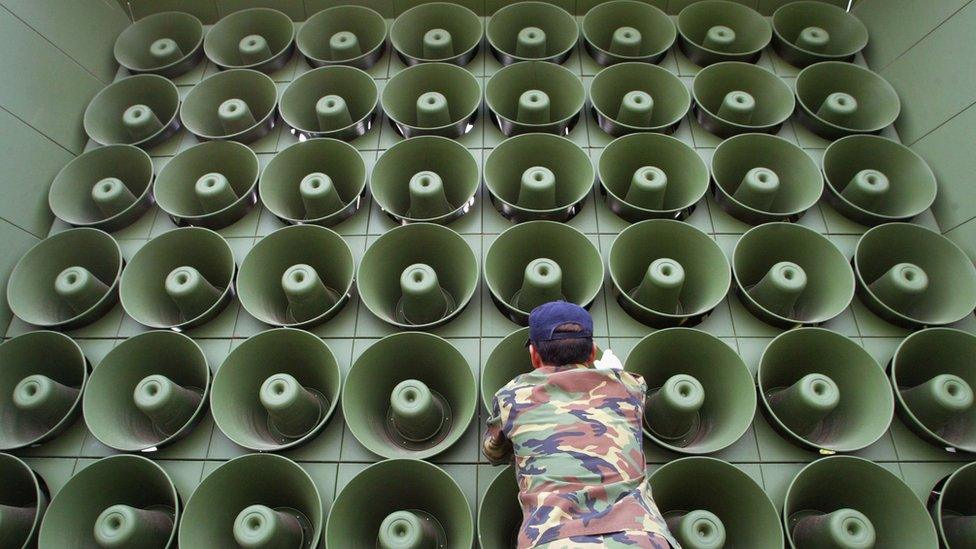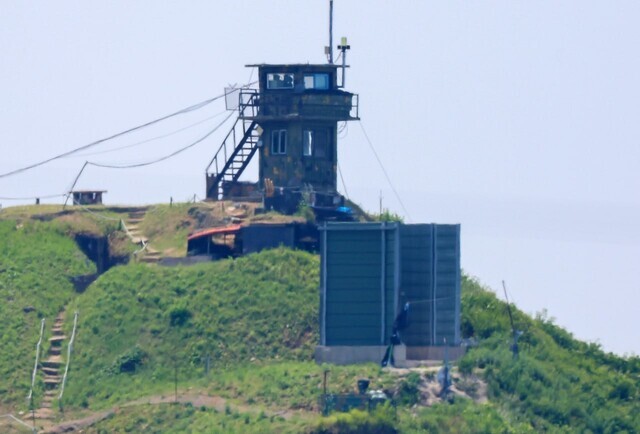Introduction
In a bold diplomatic shift, South Korea halts loudspeaker broadcasts targeting North Korea, signaling a desire to reset inter-Korean relations under newly elected President Lee Jae-myung. This decision follows years of fluctuating tensions across the Korean Demilitarized Zone (DMZ).
What Are the Loudspeaker Broadcasts?
The broadcasts, which resumed in June 2024, were part of a psychological warfare strategy, playing South Korean pop music, democracy-themed news, and anti-regime messaging directed at North Korean border troops. These loudspeakers can reportedly be heard up to 24 kilometers inside North Korea at night.
In retaliation for trash-filled balloons sent by Pyongyang last year, the South restarted broadcasts after a six-year hiatus. North Korea had called these broadcasts a “declaration of war.”

Why Has South Korea Stopped Them Now?
The suspension, announced on 11 June 2025, aligns with President Lee Jae-myung’s campaign promise to reduce hostilities and restart peaceful engagement. The military stated that this move aims to “restore trust in inter-Korean relations and achieve peace on the Korean Peninsula.”
According to a Reuters report, the suspension is strategic and reversible—South Korea retains the option to reactivate the broadcasts if provoked.
Public Reactions: Applause and Criticism
- Human rights groups: Some, including the Database Center for North Korean Human Rights (NKDB), argue the loudspeakers were vital to reaching isolated North Koreans.
- Border communities: Residents living in regions like Ganghwa county have welcomed the quiet, stating their nights had been disrupted by round-the-clock propaganda noise.
- Political analysts: Some warn that removing the loudspeakers may be viewed as appeasement unless matched by reciprocal action from Pyongyang.
Background: A History of Noise Warfare
First introduced in the 1960s, the loudspeaker campaigns were paused and resumed repeatedly based on political shifts. Most recently:
- 2024: South resumes broadcasts after North sends thousands of trash-laden balloons.
- Dec 2024: President Yoon Suk Yeol imposes martial law; later impeached.
- June 2025: President Lee halts broadcasts to prioritize dialogue.
Lee Jae-myung’s Peace Strategy
Lee’s administration marks a departure from the hawkish stance of his predecessor. His foreign policy prioritizes dialogue, reunification talks, and de-escalation. Observers say his peace-oriented rhetoric could revive long-stalled negotiations on humanitarian aid and family reunions.
Conclusion: A Pause, Not an End

While the loudspeakers have gone silent, the conflict remains active. North Korea has not responded yet, and Seoul has not dismantled the equipment. The suspension is a calculated risk—one that could either thaw icy relations or be seen as a diplomatic concession.
The next few months will reveal whether Kim Jong Un responds with restraint or resumes his provocative tactics. For now, the Korean Peninsula takes a cautious step toward peace.
📌 Also Read: Understanding Inter-Korean Peace Dynamics









